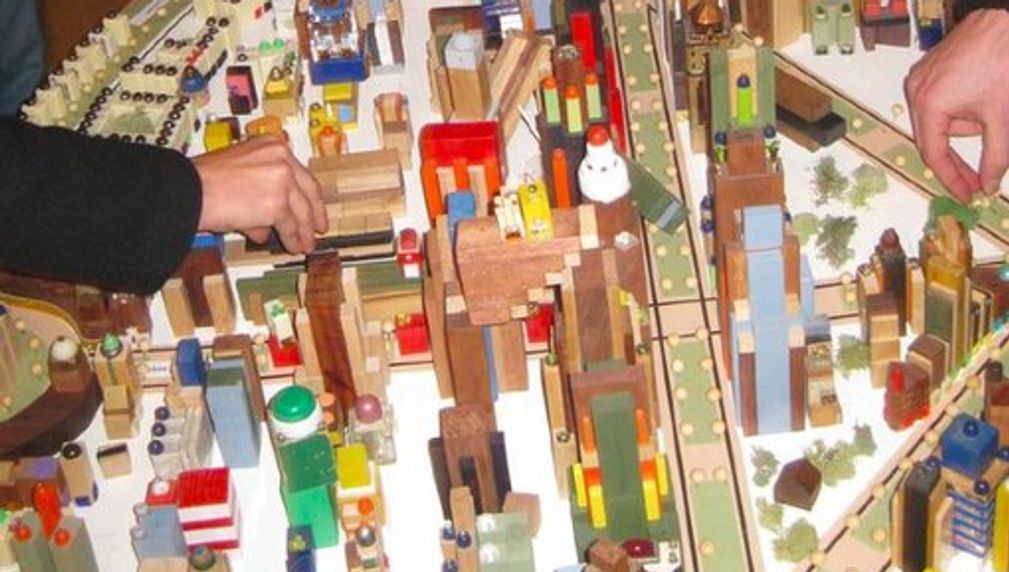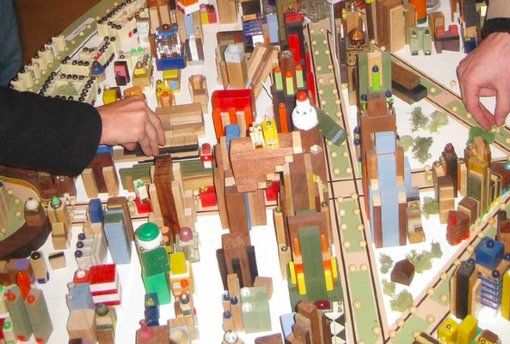Urban & Environmental Institute, Occidental College and East Yards Communities for Environmental Justice
The Urban & Environmental Policy Institute (UEPI) is a research, policy, and advocacy, organization at Occidental College committed to bringing about social change and a more just, livable and green society.
Visit this organization’s website to learn more

2 Submitted Ideas
 CONNECT ·2015 Grants Challenge
CONNECT ·2015 Grants ChallengeLA Mobilized

LA Mobilized is an initiative to showcase how LA can change how we move, and how the city can change around us. With new transportation priorities, Los Angeles has the opportunity to evolve into a more sustainable and equitable city. To tap into this potential, LA needs to democratize planning so residents can co-create the future.
- 2013 Grants Challenge
Building Blocks LA: changing the shape of Los Angeles through imaginative urban planning
Social connectedness in Los Angeles is influenced by the city’s built environment and how Angelenos come together to shape the city. To tap into the imagination of Angelenos for a more inclusive and connected city, an art-planning-policy collaboration will hold 40 workshops throughout LA to allow diverse groups of residents to share ideas, bond and inspire each other by building physical models of how they want the city to look in coming decades. The project team will translate these creative models of LA into policy ideas to influence the comprehensive revision of the city’s zoning code that starts this year.
Zoning regulates how the hundreds of thousands of buildings and pieces of land that form Los Angeles can be used. By controlling physical places, zoning has sometimes kept less powerful socioeconomic or ethnic groups “in their place” at the margins of society. And, by favoring cars and private backyards over high quality public space, it has reduced the types of social interactions that build community. In a diverse city, we cannot afford to exclude some residents from amenities and opportunities or to wall people off from their neighbors.
The City of Los Angeles recently authorized a Comprehensive Zoning Revision to start in 2013. The last time that L.A. conducted a comprehensive update of its zoning rules was 1946. This upcoming revision process is therefore a ‘once in a lifetime’ opportunity to change the DNA of land use in the City and shape Los Angeles as a more inclusive, equitable, and sustainable place.
The Urban & Environmental Policy Institute and project partners Latino Urban Forum excel in convening people and organizations to envision and advocate for more just and livable places and policies.
Everyone can be an urban planner because we all live in the city and have ideas to improve it. The workshops tap into people’s emotions and creativity by making planning visual, tactile, and playful. Language, age, income, education, and planning knowledge do not raise barriers because the medium creates an equal playing field.
Participants assemble a medley of recycled, vibrant materials into three-dimensional models of their ideal city, neighborhood street, public space, or building. By building with non-descript, found objects, participants are forced to be creative. Green yarn becomes parks, blue poker chips a river or ocean, and hair rollers are stood up for apartments or laid on their side for transit lines.
After building for twenty minutes, workshop participants have one minute to explain their model, and the vision behind it, to the group. As each person explains their model, project staff document the models and descriptions by taking notes, pictures and video.
After participants have completed and shared their individual models, they are asked to work together & create one group (or several small groups) model synthesizing all their visions. During this phase of the exercise, participants realize that they must draw from everyone’s vision. When done, groups share explain their joint models.
The project team will review images, notes and audio/visual records and ‘tag’ participants’ models and ideas to create a database of how residents want land use in LA to look and function in the future. We will write a report based on the workshop results and research into best practices, translating the models, explanations and tags into policy recommendations for the city’s zoning update. The report will focus on recommendations to make the city more inclusive and connected. For example. If participants build models and share visions highlighting the need for more diverse and affordable forms of housing, the report will highlight ways that zoning can increase the housing supply and raise funds for affordable housing.
The report will be shared with workshop participants, with community organizations and spaces that helped host workshops, and with city planners and policy makers who will shape and vote on new zoning rules.
Our project will advance social connectedness in several ways. First, the workshops will provide hands-on evidence to hundreds of Angelinos that, even if they are not trained as urban planners, they have a personal vision of what kind of city they want LA to become. This experience in creative city building will hopefully inspire more residents to get involved in planning discussions. Second, the workshops require collaboration with other participants, leading to shared envisioning of the future shape of the city. Third, by letting people build a model of their ideal urban form for LA, the process inspires a hopeful and positive outlook to changes in the built environment that is often lacking in the politics of land use.
Finally, translating the visions of hundreds of models of a more inclusive and connected city will provide a rich set of policy ideas to influence the zoning reform process.